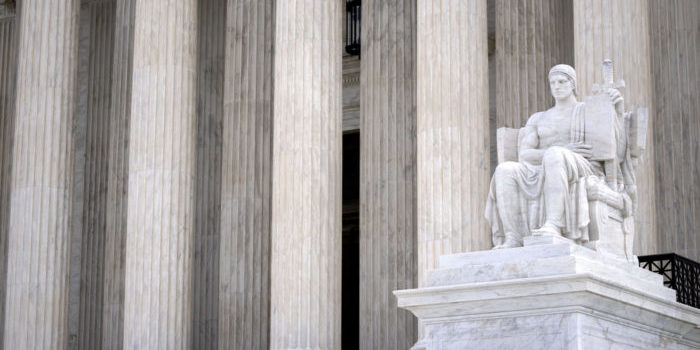(Headline USA) The Supreme Court cast doubt Monday on state laws that could affect how social-media publishers such as Facebook, TikTok, Twitter and YouTube regulate content posted by their users.
The cases are among several this term in which the justices could set standards for free speech in the digital age.
In nearly four hours of arguments, several justices questioned aspects of laws adopted by Republican-dominated legislatures and signed by Republican governors in Florida and Texas in 2021.
But they seemed wary of a broad ruling, with Justice Amy Coney Barrett warning of “land mines” she and her colleagues needed to avoid in resolving the two cases.
While the details varied, both laws aimed to address conservative complaints that the social media companies were censoring users based on their viewpoints.
Evidence has since validated many of those concerns, particularly in the leadup and immediate aftermath of the 2020 election, as tech companies colluded directly with intelligence agencies to install Democrat Joe Biden as president by suppressing and outright censoring critical information in the public forum.
Differences on the court Wednesday emerged over how to think about the platforms—as akin to newspapers that have broad free-speech protections; or telephone companies, known as common carriers, that are subject to broader regulation due to the shared infrastructure that many rely on and their semi-public function as essential communications channels.
Chief Justice John Roberts suggested he was in the former camp, saying early in the session, “And I wonder, since we’re talking about the First Amendment, whether our first concern should be with the state regulating what we have called the modern public square?”
Justices Samuel Alito and Clarence Thomas appeared most ready to embrace arguments made by lawyers for the states. Thomas raised the idea that the companies were seeking constitutional protection for “censoring other speech.”
Alito complained about the term “content moderation” that the sites employ to keep material off their platforms.
“Is it anything more than a euphemism for censorship?” he asked, later musing that term struck him as Orwellian.
But Justice Brett Kavanaugh, seemingly more favorable to the companies, took issue with calling the actions of private companies censorship, a term he said should be reserved for restrictions imposed by the government.
“When I think of Orwellian, I think of the state, not the private sector, not private individuals,” Kavanaugh said.
The precise contours of rulings in the two cases were not clear after arguments, although it seemed likely the court would not let the laws take effect.
The justices posed questions about how the laws might affect businesses that are not the primary targets of the laws, including e-commerce sites like Uber and Etsy, as well as email and messaging services.
The cases were among several the justices have grappled with over the past year involving social-media platforms.
Next month, the court will hear an appeal from Louisiana, Missouri and other parties accusing administration officials of pressuring social-media companies to silence conservative points of view.
Two more cases awaiting decision concern whether public officials can block critics from commenting on their social-media accounts, an issue that previously came up in a case involving then-President Donald Trump. The court dismissed the Trump case when his presidential term ended in January 2021.
The Florida and Texas laws were passed in the months following decisions by Facebook and Twitter to cut Trump off over his posts related to the Jan. 6 uprising at the U.S. Capitol.
Trade associations representing the companies sued in federal court, claiming that the laws violated the platforms’ speech rights. One federal appeal struck down Florida’s statute, while another upheld the Texas law. But both are on hold pending the outcome at the Supreme Court.
In a statement when he signed the bill into law, Florida Gov. Ron DeSantis said the measure would be “protection against the Silicon Valley elites.”
When Gov. Greg Abbott signed the Texas law, he said that it was needed to protect free speech in what he termed the new public square.
Social media platforms “are a place for healthy public debate where information should be able to flow freely—but there is a dangerous movement by social media companies to silence conservative viewpoints and ideas,” Abbott said. “That is wrong, and we will not allow it in Texas.”
However, much has changed since then. Elon Musk purchased Twitter and, in addition to changing its official name to X, he eliminated teams focused on content moderation, welcoming back many users previously banned for committing thought-crimes against its far-left dogma.
Lawyers for Trump filed a brief in the Florida case urging the court to uphold the state law.
Still, Solicitor General Elizabeth Prelogar, the Biden administration’s top Supreme Court lawyer, cautioned the court to seek a narrow ruling that blocked the laws.
Prelogar said governments maintain the ability to impose regulations to ensure competition, preserve data privacy and protect consumer interests.
Several left-wing academics and advocacy groups told the court that they viewed the laws at issue in these cases as unconstitutional, but wanted the justices to preserve the government’s ability to regulate social media companies to some extent, provided it only impacted those they disagreed with.
Adapted from reporting by the Associated Press

